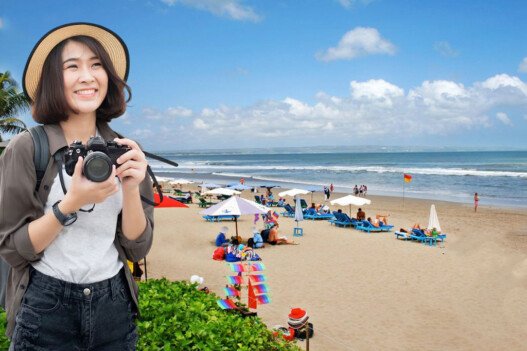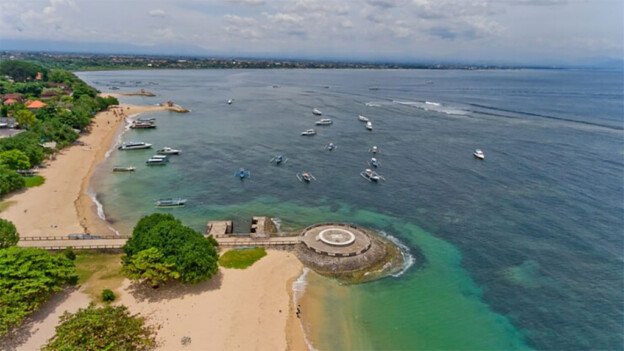Visiting Bali is an enchanting experience filled with stunning beaches, vibrant culture, lush landscapes, and warm-hearted locals. While English is widely spoken in tourist areas, learning a few basic Balinese phrases can truly elevate your experience and show respect to the locals. It’s not only a way to communicate but also a beautiful gesture that locals deeply appreciate. In this guide, we’ll walk you through essential Balinese phrases, pronunciation tips, and cultural insights to help you connect better during your trip. Plus, you’ll leave Bali with a memorable linguistic souvenir!
Why Learn Balinese? 🤔✨
Before diving into the phrases, let’s talk about why learning some Balinese is worthwhile.
1. Show Respect and Appreciation
Balinese people are proud of their language and culture. Making an effort to speak even a little Balinese can show your respect for their heritage.
2. Enhance Your Travel Experience
Conversations with locals become more meaningful. You might find yourself invited to traditional ceremonies, local markets, or authentic cultural events.
3. Navigate with Ease
From ordering food to asking directions, knowing basic phrases can make your travel smoother and more fun.
4. Make Friends and Connections
Speaking the local language breaks down barriers and opens doors to genuine friendships.
Balinese Language: A Quick Overview 🗣️📚
Balinese is a Malayo-Polynesian language spoken by the Balinese people on the island of Bali, Indonesia. It differs from Indonesian (Bahasa Indonesia), which is the national language. The Balinese language has distinct levels of formality, influenced by social status and context, but as a traveler, you’ll mostly use the polite and casual forms.
Greetings and Basic Expressions 🙏🌞
Let’s start with the essentials — greetings and polite expressions. Use these to make a positive first impression.
1. Hello — Om Swastiastu 🙏
Pronounced: ohm swah-stee-ah-stoo
This is the most common greeting in Bali, meaning “may you be well.” It’s a respectful greeting used any time of the day.
2. Good Morning — Selamat Pagi ☀️
Pronounced: suh-lah-mat pah-gee
A polite way to say good morning.
3. Good Afternoon — Selamat Siang 🌤️
Pronounced: suh-lah-mat see-ahng
4. Good Evening — Selamat Malam 🌙
Pronounced: suh-lah-mat mah-lahm
5. Goodbye — Sampai Jumpa 👋
Pronounced: sam-pie joom-pah
Literally means “until we meet again.”
6. Thank You — Suksma 🙏
Pronounced: sook-smah
The simplest and most important word you’ll use frequently.
7. You’re Welcome — Sama-Sama 😊
Pronounced: sah-mah sah-mah
A polite reply when someone thanks you.
8. Please — Mangda 🙇♂️
Pronounced: mang-dah
Use this word to politely ask for something.
9. Sorry / Excuse Me — Nyuh 😅
Pronounced: nyoo
Used to apologize or get attention.
Common Questions to Get You Started ❓🤓
Knowing how to ask questions helps you interact and explore more freely.
10. What is your name? — Siapa Nama Anda?
Pronounced: see-ah-pah nah-mah ahn-dah?
11. My name is… — Nama saya…
Pronounced: nah-mah sah-yah
12. Where is…? — Di mana…?
Pronounced: dee mah-nah?
Perfect for asking directions.
13. How much? — Berapa harganya?
Pronounced: buh-rah-pah har-gah-nya?
Use this when shopping or negotiating prices.
14. Do you speak English? — Bisa Bahasa Inggris?
Pronounced: bee-sah bah-hah-sah ing-gris?
Helpful to know when locals can assist you in English.
Food and Dining Phrases 🍛🍹
Balinese cuisine is delicious, and ordering food in the local language will enrich your dining experience.
15. I’m hungry — Aku lapar 🍽️
Pronounced: ah-koo lah-par
16. I want to eat — Saya mau makan 🍜
Pronounced: sah-yah mau mah-kahn
17. Delicious — Enak 😋
Pronounced: eh-nahk
18. Water — Air 💧
Pronounced: ah-yer
19. No spicy, please — Jangan pedas 🌶️
Pronounced: jah-ngan puh-dahs
Numbers for Everyday Use 🔢🧮
Knowing numbers helps with shopping, transportation, and more.
| Number |
Balinese |
Pronunciation |
| 1 |
Siki |
see-kee |
| 2 |
Dua |
doo-ah |
| 3 |
Tiga |
tee-gah |
| 4 |
Papat |
pah-paht |
| 5 |
Lima |
lee-mah |
| 6 |
Nem |
nehm |
| 7 |
Pitu |
pee-too |
| 8 |
Kawan |
kah-wahn |
| 9 |
Siwa |
see-wah |
| 10 |
Dasa |
dah-sah |
Essential Travel Phrases ✈️🚗
Navigating Bali is easier when you know these.
20. Where is the bathroom? — Di mana kamar mandi? 🚽
Pronounced: dee mah-nah kah-mar mahn-dee?
21. Help! — Tulung! 🚨
Pronounced: too-loong!
22. I’m lost — Aku kesasar 🧭
Pronounced: ah-koo kuh-sah-sar
23. Taxi — Taksi 🚕
Pronounced: tahk-see
24. How much to go to…? — Berapa ongkos ke…?
Pronounced: buh-rah-pah ong-kos kuh…?
Cultural Tips to Impress Locals 🎭🙏
Beyond language, understanding cultural etiquette can make your interaction more respectful and rewarding.
- Use “Om Swastiastu” at the beginning of conversations as a respectful greeting.
- Avoid touching someone’s head, as it is considered sacred.
- Use your right hand or both hands when giving or receiving something.
- Respect temple rules by dressing modestly and following the local customs.
- Smile often — Balinese people are warm and smile readily.
Practice Makes Perfect! 🎤💡
Try repeating the phrases daily before your trip or even while exploring Bali. Locals appreciate the effort and will often respond with kindness or encouragement.
Final Thoughts 🌴❤️
Learning basic Balinese phrases is more than a practical tool — it’s a bridge to deeper cultural understanding and meaningful connections. Whether you’re ordering food at a warung, bargaining at a market, or greeting a friendly local, these simple phrases will help you navigate Bali’s rich culture with confidence and warmth.
So, start practicing Om Swastiastu today, and get ready to charm the island of Bali with your newfound linguistic skills! Safe travels and Selamat Jalan (safe journey)!









